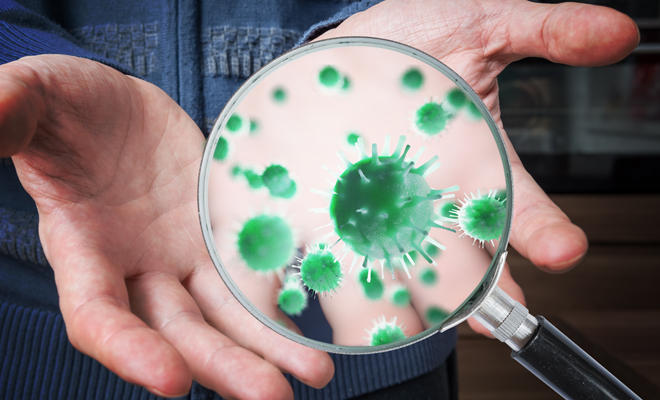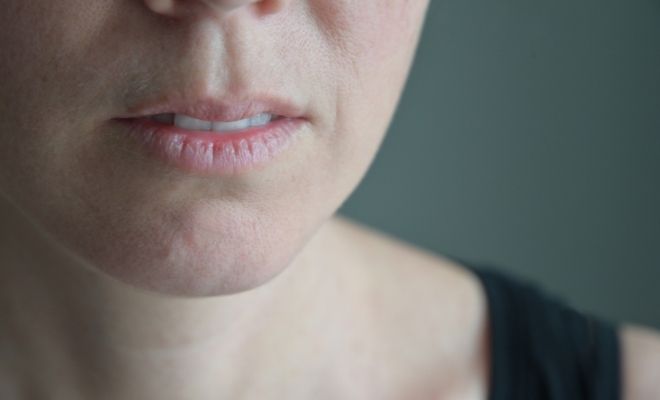How pollution TOC manifests itself
The obsession is to become contaminated, infected, and infected because something or someone is contaminated. The fear is of contracting a serious illness or that your family will be infected, but all related to contaminated or sick spaces or people. Irrational can go to extremes like avoiding shaking hands or changing your clothes as soon as you gets home from a subway ride. Hospitals, for example, are one of the places most feared by people suffering from OCD contamination.

Public places are also dangerous places for this TOC contamination. Everything is contaminated, everything is susceptible to danger. Traveling by subway, entering a bank office, the supermarket itself… How many people pass by at the end of the day? How many people have touched that same shopping cart that you are carrying? How many people have used the bank branch pen? How many people have grabbed the subway bar?
The home itself is not free from the fears and obsessions of people with OCD contamination. If you feel responsible for the health of your loved ones, you will not hesitate to compulsively everything in the house. In this case, it is not necessary that everything be tidy, but rather clean and disinfected. Let no one get infected with any virus or bacteria, let no one get an infection due to contamination. And pollution is everywhere.
Contamination OCD Compulsions
There are many and very different compulsions or rituals that derive from this disorder. Examples:
- Washing hands is the most frequent compulsion. The number of times this gesture is performed can cause physical injury.
- Bathing or showering many times a day to eliminate the feeling of contamination.
- Wear gloves or do not touch anything directly. Open the doorknob with a tissue or even turn on the light switch with your elbow to avoid skin contact.
- Clean the whole house, every day, and every corner. Clean and disinfect to avoid contagion.
- Avoid some foods that may be contaminated.
- Open the containers with the protection of a kitchen towel or gloves.
- Avoid direct contact with other people or even get too close.
- Don’t kiss anyone, don’t touch anyone, and keep plenty of space around you.
- Take off all your clothes as soon as you get home because you think they are contaminated.
Consequences of contamination TOC
As you can see, it is an Obsessive Compulsive Disorder that involves many dangers, both physical and psychological. The obsession with the danger of contagion or contamination comes loaded with great and in some cases it is possible to suffer a panic attack. That anxiety is reduced only with the compulsions, but it is a process similar to that of drug addiction: it is never enough.
You may feel relief when you wash your hands, but the normal functioning of daily life will lead you to encounter a new danger five minutes later. And you’ll have to wash your hands again. Anxiety ceases for a few minutes, nothing more. Then it comes back with more intensity because the obsession gets bigger and bigger and covers more and more areas of your life.
With pollution OCD your whole life is affected. Social isolation is the most obvious consequence. The person with OCD, in the most serious cases, will avoid leaving the house at all costs so as not to expose them to contamination. And what about work? Not touching objects that your coworker has touched, for example, will cause more than one misunderstanding.
And to the most obvious consequences are added those internal consequences of suffering from Obsessive Compulsive Disorder. Living with an obsession that dominates you wears out your energy, your and destroys your psychic system. Intrusive thoughts make you move away from reality to lock yourself in your world of compulsive acts and irrational fears. And deep down you know that something is wrong with you. It is time to ask for help.
Is there treatment for contamination OCD?
There is treatment for Obsessive Compulsive Disorder but it does or does go through psychotherapy. In some cases, it can be combined with a pharmacological treatment, but it is the psychological therapy that will manage to protect you against relapses.
The most widely used is cognitive, which is also used to treat anxiety, depression, and phobias. In this therapy you work on intrusive thoughts to eliminate obsessions and, once eliminated, it is easier to stop performing the compulsions.
Acceptance and commitment therapy is also effective and, of course, any treatment must be accompanied by relaxation to reduce anxiety and gradual exposure techniques to deal with this fear of contamination.






